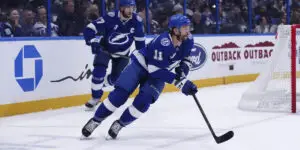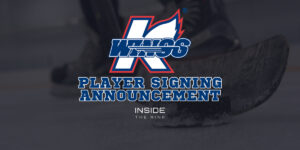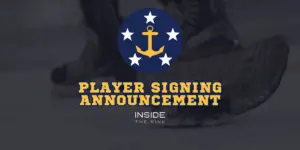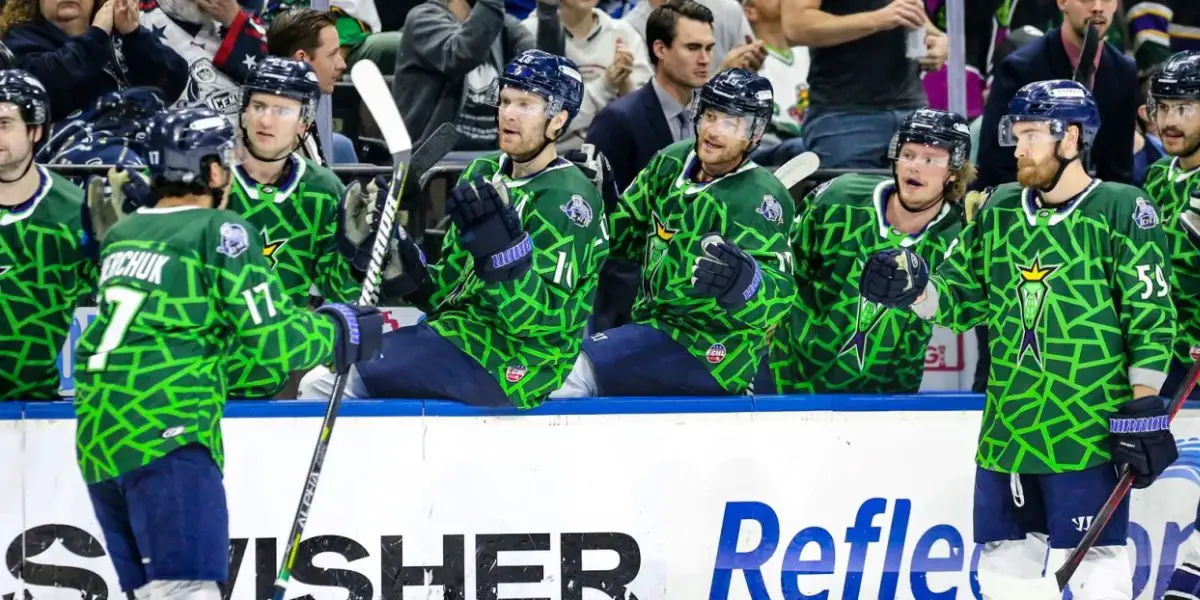
As a native Floridian, I catch a lot of odd looks and remarks when I profess my love for the sport of hockey. One of the most memorable interactions I’ve had as a hockey fan from Florida came in my early 20’s. As a Southern transplant in the Midwest, I was once asked what my favorite sport was. When I responded with hockey the initial reaction was unremarkable, “Ah, hockey. That’s cool.” Then, of course, came the follow-up, “Wait, aren’t you from Florida? They have ice hockey in Florida? I didn’t even think you could get ice in your drink down there.”
The truth is hockey has a deep history in the Sunshine State. Long before the NHL was setting up shop in places like Tampa and Ft. Lauderdale, minor league teams were peppered throughout the peninsula. From Lakeland to West Palm Beach, the state of Florida has seen its fair share of leagues and teams call it home over the decades. Most notably, there has always been one city on the forefront of bringing ice hockey to the tropical swamplands of Florida. That’s right – before the Icemen were starting riots in the third period and lizard goalies were on TV stopping pucks with their tongues, the First Coast was playing first host to the sport of ice hockey. To revisit hockey history in the state of Florida, you’d first have to pay a visit to the city of Jacksonville.
The Yester-years:
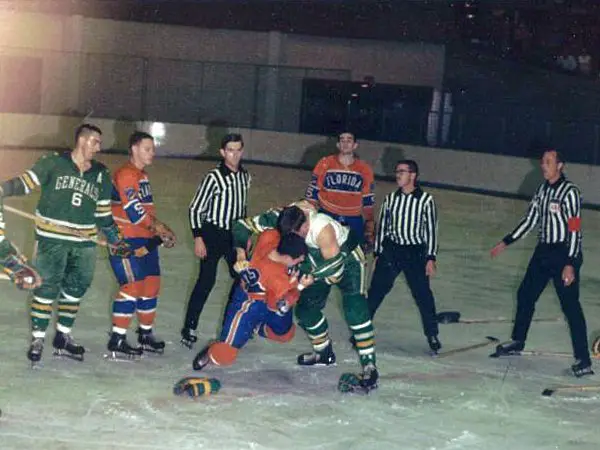
Decades before the Jacksonville Icemen would come to town and freeze over hearts in the warmest ways, there was a team known as the Jacksonville Rockets. From 1964 to 1972, the Rockets played in the now-defunct Eastern Hockey League and became the first professional ice hockey team to call the state home. Jacksonville was selected as an expansion city when the league sought a bigger footprint in the southern states as, at the time, the newly built Jacksonville Coliseum was one of the only venues capable of housing a pro hockey team in the state of Florida. The Rockets had a rough first two years in Jacksonville, going 13-57-2 in the 1964-65 season and 12-57-3 in the 1965-66 season. The team would split time between St. Petersburg and Jacksonville from 1966-68, becoming the Florida Rockets for a brief stint before returning full-time to the River City. In 1972 the team would fold, but Jacksonville wouldn’t be without hockey for long.
In 1973 the American Hockey League’s Cleveland Barons relocated to Jacksonville after the city of Cleveland was awarded a second professional hockey team during the days of the World Hockey Association. As one of the most storied AHL organizations, the Barons’ move to Jacksonville drew early crowds of 9,000+ to the coliseum. However, the team did not last. With an underperforming team on the ice and attendance dwindling, team owner Nick Mileti was forced to shut the team down due to financial troubles. The team played their last games in the 1973-74 season. With the loss of the short-lived Jacksonville Barons, the city of Jacksonville and the state of Florida would be without a professional hockey team until 1992.
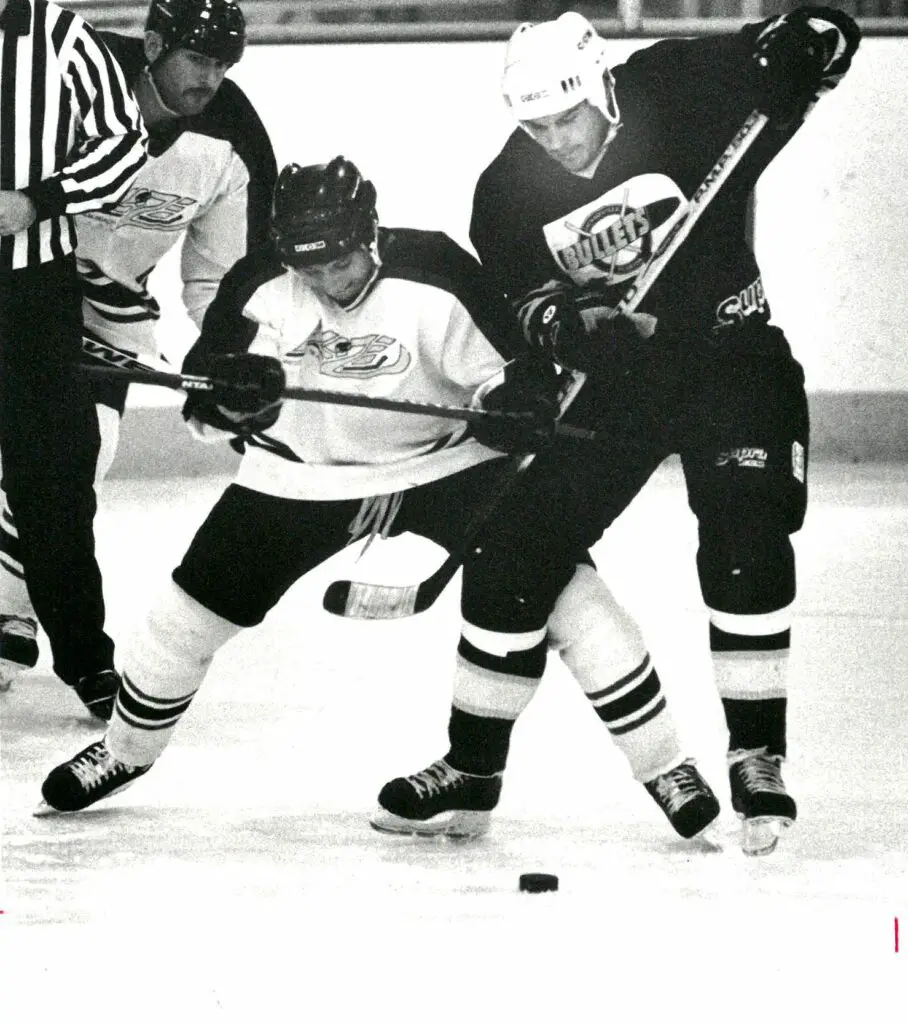
Nearly 20 years after the loss of the Barons came the next attempt at professional hockey in Jacksonville, the Sunshine Hockey League’s Jacksonville Bullets. In 1992 the Bullets were one of a handful of teams to take part in the Sunshine Hockey League’s (SuHL) inaugural season. The SuHL was a minor-level league that operated from 1992-95, rebranding for its final season in 1995-96 as the Southern Hockey League. The Bullets played their home games at the Jacksonville Coliseum and at a local ice rink called Skate World. The team saw mild success on the ice, advancing to the Sunshine Cup Final in their first three seasons and falling to the West Palm Beach Blaze every time. Attendance for the team’s games wasn’t favorable, and like the Barons, the Bullets struggled financially. Former Jacksonville Rockets Head Coach Bob Sabourin purchased the team in 1994 in an attempt to keep the franchise alive. In 1995 the SuHL would undergo its rebranding, and, adding to a growing list of woes for the Bullets, the ECHL would announce the arrival of a second hockey team in Jacksonville, the fabled Lizard Kings. The Bullets would stay alive for the 1995-96 season with the Southern Hockey League but folded due to league restraints and a new professional team calling Jacksonville home.
Arrival of the Kings:
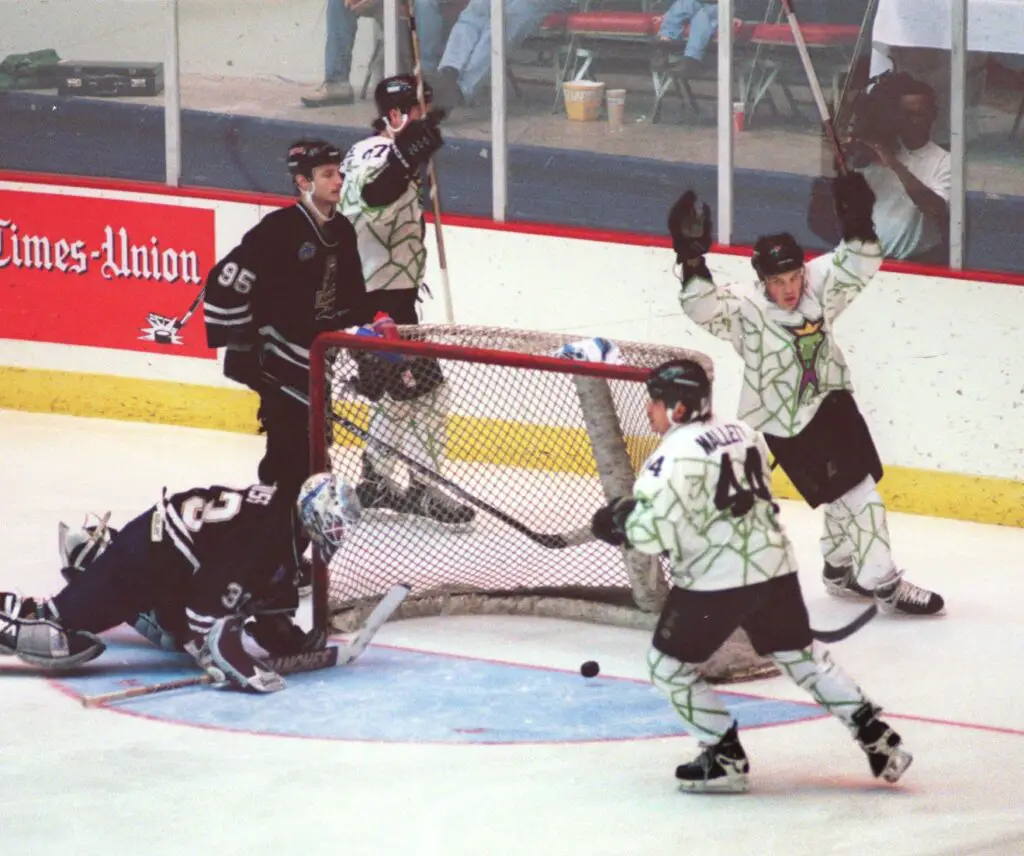
It would be the Lizard Kings’ legacy that laid the ground work for the current-day ECHL presence in the city of Jacksonville. When the rowdy reptiles took to the ice in 1995, they went on quite a run. Playing their brand of “cold blooded hockey,” the Lizard Kings made it all the way to the ECHL’s Riley Cup Finals in their inaugural year, eventually losing to the Charlotte Checkers. The team’s performance following that inaugural season would be hit or miss, with the Lizard Kings only returning to postseason play just once after that in the 1998-99 season. However, Jacksonville saw its share of hockey greatness during the Lizard King years. From 1997-99 the team would be led by Bruce Cassidy, now a Stanley Cup Winning head coach in the NHL with the Las Vegas Golden Knights. Forward Cail Maclean, the record holder for fourth most points in Lizard Kings history with 122, is now an assistant coach for the NHL’s Calgary Flames.
Resurrected and rebranded from its Louisville Icehawks origins, the Jacksonville Lizard King hockey club had far more success integrating into the city than previous hockey teams due to its ingenious marketing. Fans responded well to having a reputable, legitimate hockey league in Jacksonville and had no issues with supporting the new team. Attendance was sustainable and impactful enough that the Jacksonville Coliseum would become the “Reptilian Pavilion” on Lizard Kings game nights. That aggressive marketing came with an aggressive price tag, though, and the team struggled with operating costs. After losing over $2 million in four years, the team ceased operations in 2000 with the intention of rejoining the league once a new arena was built in Jacksonville. Though the initial intention was to return to operations, the team would eventually shut down, and a new hockey team on the First Coast would emerge.
In 2002 the Jacksonville Barracudas would take the ice for the first time in the Atlantic Coast Hockey League. Posting an inaugural 18-41-1 record in the ACHL during the 2002-03 season, the team swapped leagues in the following year. Team Owner David Waronker formed the World Hockey Association 2, moving the team to the newly formed league for the 2003-04 season. The WHA2 was over as quickly as it began, folding in 2004, but the Barracudas managed to make more Jacksonville hockey history during the league’s existence. With a 40-18-1 record, the Barracudas took home the league title, making them the only professional hockey team in Jacksonville to win a championship. After the WHA2 was disbanded, the team was sold and moved to the Southern Professional Hockey League in 2004. After an adjustment period in the SPHL, the Barracudas began to trend in a positive direction both on and off the ice. Attendance was modest but consistent, and the team made it all the way to the SPHL Finals during the 2006-07 season, ultimately losing to the Fayetteville FireAntz.
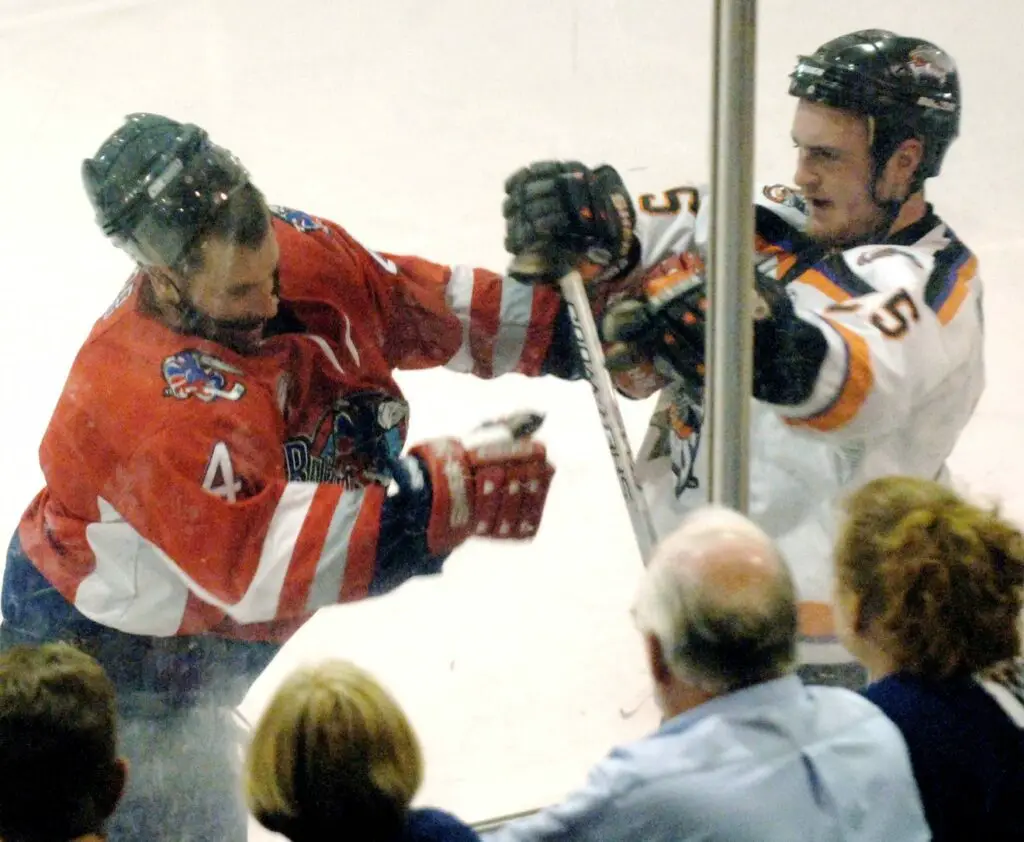
Despite their success, the Barracudas found it hard to afford a new lease agreement with the recently constructed VyStar Veterans Memorial Arena and had to relocate to a local rink, the Jacksonville Ice and Sportsplex (formerly Skate World), for the 2007-08 hockey season. The Barracudas would finish the 2007-08 season with a 30-17-2 record, advancing once again to the SPHL Finals in the postseason. The Knoxville Ice Bears would get the better of the team in its second consecutive finals appearance. Due to the smaller size of the Jacksonville Ice venue, however, the team found it difficult to remain financially viable. As yearly team attendance averaged somewhere around the 2,000 mark, the 900-seat venue made it difficult to sustain operating costs, and it suspended operations in 2008.
The Iceman Cometh:
After 17 years without a league presence in the River City, the ECHL announced in February of 2017 that the Board of Governors had approved the move of a franchise from Evansville, Indiana, to the bold city of Jacksonville, Florida. Previously in 2015, then owner of the Icemen, Ron Geary, announced that the team was renegotiating its lease agreement with the city of Evansville. Once the lease negotiations fell through, Geary announced that the team would remain dormant for the 2016-17 season while it moved to Owensboro, Kentucky. When a new group took over the arena remodel in Owensboro, Geary pivoted again and announced that a portion of the franchise had been sold to an investment group in Jacksonville. Nine years after the Jacksonville Barracudas last took the ice, professional hockey would make its return to Jacksonville. The iceman had cometh.
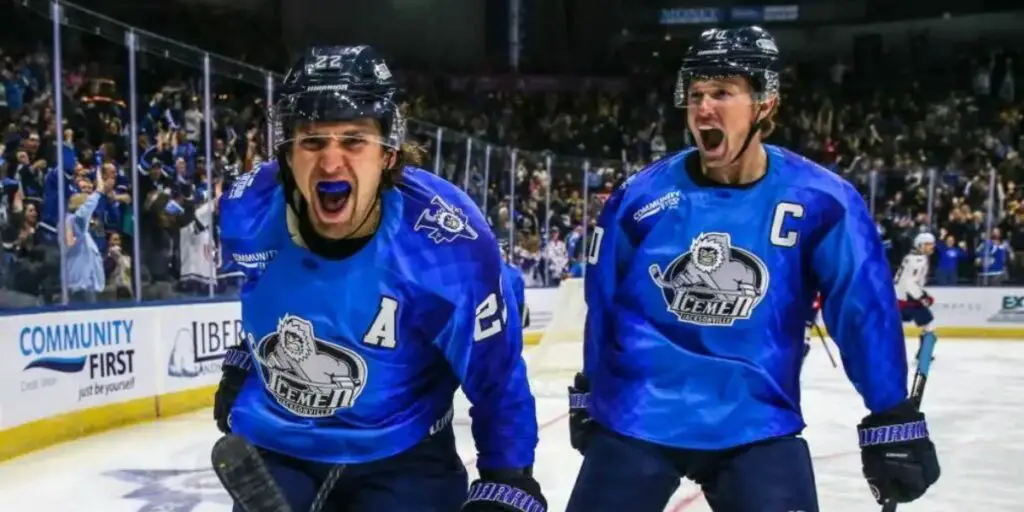
When the Jacksonville Icemen took to the ice for the first time in 2017, it was the first time in 10 years that professional hockey had been played at VyStar Veterans Memorial Arena. The team struggled the first year, posting a record of 26-39-4-3, but the city of Jacksonville re-welcomed hockey with open arms, averaging 5,700+ fans at each home game in their first year. In a proper revamp of Jacksonville’s professional hockey culture, the team brought on Head Coach Jason Christie to lead behind the bench for the first four seasons. Christie, who is the winningest coach in ECHL history, oversaw a slow but continued positive trend on the ice, including a postseason appearance during his second season at the helm. He would leave the team in July of 2021 to join the Buffalo Sabres of the NHL as an Assistant Coach, ushering in Nick Luukko as the Icemen’s new bench boss. It was also in the summer of 2021 that the team would announce a new NHL and AHL affiliate partnership. After being the third stop in the Winnipeg Jets’ pipeline for four seasons, the team would now serve as the NHL’s New York Rangers and the AHL’s Hartford Wolfpack’s affiliate team.
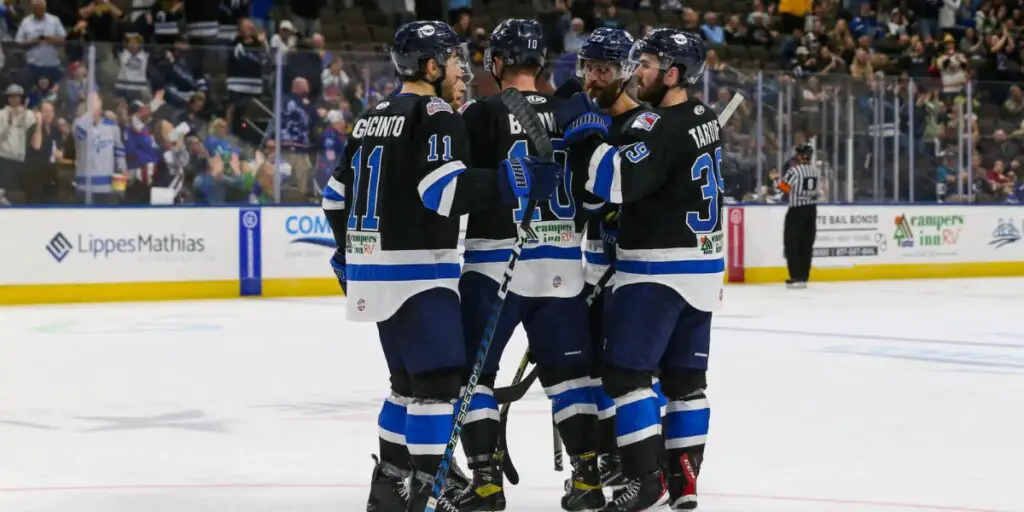
Under Head Coach Nick Luukko, the Jacksonville Icemen have found a new edge in their game. Making consecutive postseason appearances for the first time in franchise history this past season, the team’s success has skyrocketed in the past two years. In his first year as Head Coach, Luukko saw the Icemen record a 40-win season – a franchise record. That record has already been broken, as the Icemen finished the 2022-23 season with 44 wins. After garnering attention league-wide for the fans’ ravenous support, in 2022, the city of Jacksonville hosted the ECHL’s All-Star Classic and fan fest. Being awarded the all-star game event only bolstered support for hockey throughout the First Coast, with the Icemen setting a new average attendance record for the league this past season with an average of 7,749 fans. The team also just celebrated the grand opening of the Community First Igloo – which also happens to formerly be Jacksonville Ice and Sportsplex, which happened to also formerly be Skate World. Yep, the place where hockey took some of its first strides in the city of Jacksonville is also the same place where hockey continues to grow in the city today.
The next chapter of Jacksonville Icemen hockey will begin to unfold in October. With the Icemen set to announce a new NHL/AHL partnership on July 17th and the team locked into their lease with VyStar Veterans Memorial Arena through the 2030-31 season, this chapter of professional ice hockey in Northeast Florida appears poised to be the most successful one yet.
Discover more from Inside The Rink
Subscribe to get the latest posts sent to your email.

